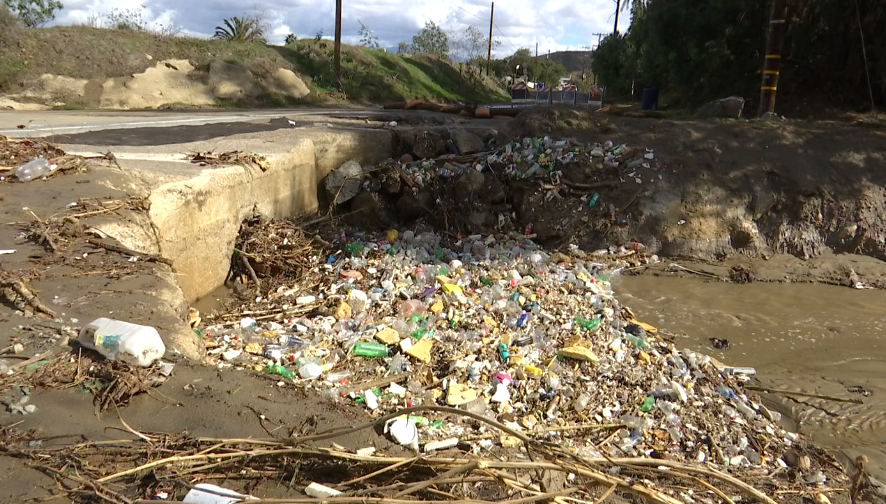
As part of his disaster relief package, President Joe Biden has asked for $310 million for the South Bay International Wastewater Treatment Plant to address sewage flows coming from Tijuana into the United States, a move that was praised by San Diego's congressional delegation on Tuesday.
The funding package must be approved by Congress. The same request was made last year and Congress approved $156 million for the local project.
If passed, the money would add to a previously awarded $400 million in federal funding to get the plant running at full capacity and even double its capabilities.
The local Congressional delegation celebrating the accomplishment include Reps. Juan Vargas, Scott Peters and Sara Jacobs, all D-San Diego, and Rep. Mike Levin, D-Dana Point.
Get top local stories in San Diego delivered to you every morning. >Sign up for NBC San Diego's News Headlines newsletter.
"After our continued calls for action, I'm glad to see President Biden demonstrate yet again that addressing this pollution is a key priority," Vargas said in a statement. "We know there's more work to do. This funding must get through both the House and the Senate. But to all the members of our community who have joined us and raised their voices about the impacts of this terrible pollution, your advocacy is making a difference. Leaders at the highest level of government are listening."
Toxic Tide
The announcement came one day after a lawsuit was filed against the company managing the plant by South Bay residents affected by raw sewage allegedly discharged from the plant and into the waters of southern San Diego County. It was the second lawsuit against Veolia, a French water management company that was also involved in the Flint, Michigan, water crisis and has been in litigation for other public health crises in Oklahoma, Pennsylvania and Colombia.
The border pollution crisis has been affecting residents in the South Bay for decades and has only in recent years garnered more widespread attention. The city of San Diego -- which first declared an emergency in 1993 -- has called on the federal government to declare its own emergency over the cross-border issue. Imperial Beach, the city most affected by the crisis, declared an emergency in 2017 and San Diego County followed in 2023.
WATCH NBC 7's special 'Toxic Tide: The sewage crisis at the border'
NBC 7 investigates the millions of gallons of raw sewage crossing from Tijuana into the United States every day, including how the crisis affects our health — and what must be done to end it.
Following the border sewage crisis
In May, the local Congressional delegation, including Vargas and Reps. Scott Peters and Sara Jacobs, both D-San Diego, and Rep. Mike Levin, D-Dana Point, called on the U.S. Centers for Disease Control and Prevention to begin an investigation into pollutants from the ongoing sewage crisis at the border.
Around 2,000 South County residents have responded to a survey by the CDC, open through next Friday.
The Assessment of Chemical Exposures was started by the county in partnership with the CDC's Agency for Toxic Substances and Disease Registry in October. The goal was to receive feedback from people who live, work or play in south county about how the ongoing sewage pollution crisis has affected them.
The San Diego congressional delegation also called on the Environmental Protection Agency to support the San Diego County Air Pollution Control District to monitor the air quality in communities impacted by Tijuana River Valley pollution.
Toxic Tide
In early September, high levels of noxious gases such as hydrogen sulfide and hydrogen cyanide were measured by scientific teams in the river valley and noticed by residents due to the rotten egg smell even miles from the border. Ultimately, crews from San Diego County determined there was no immediate health risk, but many residents believed the crisis had reached a turning point.
Biden's proposed disaster relief package tops out at more than $98 billion, most of which would go to areas ravaged by back-to-back hurricanes Helene and Milton.









